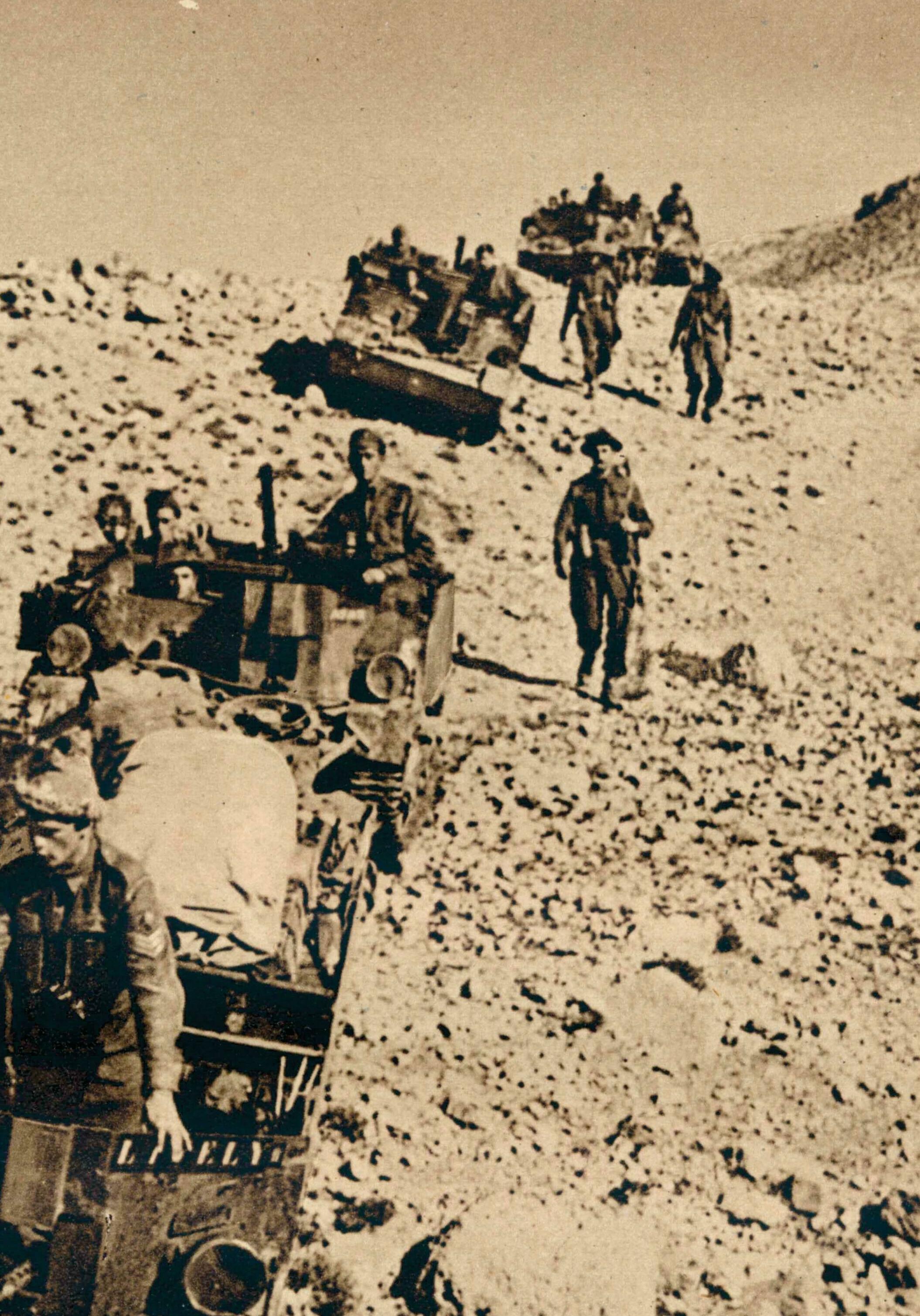Try GOLD - Free
THE STALINGRAD OF AFRICA
BBC History UK
|October 2025
In 1943, Allied and Axis troops contested one of the most decisive campaigns of the Second World War. Saul David tells the story of the battle for Tunis – as hard-fought as the struggle for the Soviet city
-

Early on 8 November 1942, Adolf Hitler's special train was en route from Berlin to Munich when it was stopped at a small station in the Thuring- ian Forest to receive an urgent message from the Foreign Office. A day earlier, Hitler's HQ staff had received a "very disturbing signal" from German agents in Gibraltar, informing them that a large Allied troop convoy had passed heading in an easterly direction. Most on the train assumed the convoy was bound for Libya, a colony of Germany's ally Italy since 1912. But its true destination was revealed by the Foreign Office commu- iqué: "A US expeditionary corps is disembarking in Algiers and Oran," ports in French-controlled Algeria.
Hitler was aghast. Aware that French North Africa (Algeria, Tunisia and Morocco, controlled by the collabo- rationist Vichy regime) was an area of the "greatest political and strategic importance", he asked his advisors what resources were available to meet the threat. The answer was: none.
Farther down the line, Joachim von Ribbentrop boarded the train. So concerned was the German foreign minister about the news coming from the Mediterranean that he urged Hitler to put out peace feelers to Stalin, hoping to free up German men and materials to be rushed to north Africa. The Führer refused: “a moment of weakness is not the proper time to negotiate with an enemy.”
This story is from the October 2025 edition of BBC History UK.
Subscribe to Magzter GOLD to access thousands of curated premium stories, and 10,000+ magazines and newspapers.
Already a subscriber? Sign In
MORE STORIES FROM BBC History UK

BBC History UK
On the skids
Richard Rodgers and Oscar Hammerstein II's smash musical Oklahoma! opened on Broadway on 31 March 1943.
1 min
Christmas 2025

BBC History UK
Small pleasures
Memory is imperfect, but what if you could get a professional model maker to recreate a moment from the past?
1 min
Christmas 2025

BBC History UK
Bath in five places
In the Georgian era, Bath became arguably Britain's most fashionable destination. KIRSTEN ELLIOTT promenades five historic highlights
3 mins
Christmas 2025

BBC History UK
End times
Why do civilisations that dominated their epoch fail? In an era of autocracy, climate change, the rise of Al and a first-hand understanding of how deadly pandemics can be, it's a question that seems pertinent.
1 min
Christmas 2025

BBC History UK
What are the origins of the Yule Lads?
To learn about the Jólasveinar (Yule Lads), we must start with their mother, the terrifying ogress Grýla. Her name appeared in Icelandic texts as early as the 13th century, although it wasn’t until later that those 13 mischievous lads became associated with her. Folk tales and poems tell how she descends from the mountains with an empty sack to stuff full of children. Grýla owns the monstrous Jólaköttur (Yule Cat), which roams the countryside on Christmas Eve, searching for children to gobble up if they're not wearing new clothes.
1 mins
Christmas 2025

BBC History UK
Santa Claus v Father Christmas
The true identity of the white-bearded, red-robed figure who fills children's stockings at Christmas has long been debated. Thomas Ruys Smith sizes up the merry contenders
8 mins
Christmas 2025

BBC History UK
Frontier friction
Set in Washington Territory in 1854, The Abandons is a Western that's unusual for having two matriarchs, women whose lives become entangled, at its centre.
1 min
Christmas 2025

BBC History UK
The Last Days of Pompeii: The Immersive Experience
Delve into the culture of daily Roman life, witness the momentous eruption of Mount Vesuvius, and follow its fallout in Immerse LDN's new exhibition. In a blend of cutting-edge technology and vivid storytelling, this exhibition launches visitors into Pompeii's rich history with recreations of the ancient city's beautiful pre-eruption landscape, a 360-degree virtual reality Roman amphitheatre experience, and a digital metaverse recreating Pompeii's 'Villa of Mysteries'.
1 min
Christmas 2025

BBC History UK
Elizabeth Marsh The corsair's captive
Taken hostage by a Barbary ship's captain in the 18th century, a young Englishwoman found herself fighting for her freedom in Marrakech. ADAM NICHOLS introduces a brave captive who later wrote a book about her dramatic experiences
6 mins
Christmas 2025

BBC History UK
29 DECEMBER 1170: Thomas Becket is murdered in Canterbury
Knights loyal to Henry II rid him of the “low-born cleric”
2 mins
Christmas 2025
Listen
Translate
Change font size
